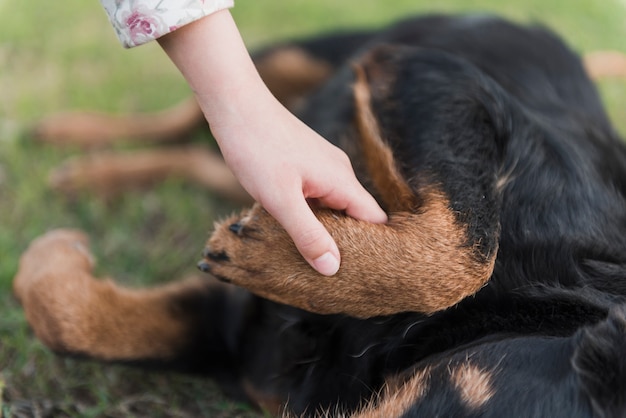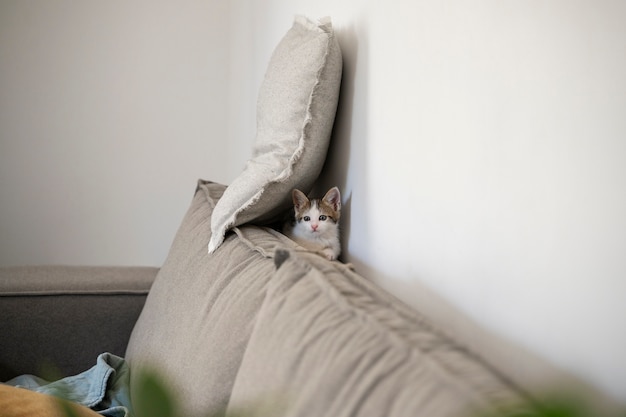Hot Weather Pet Safety Tips for Grand Prairie Owners


Hot Weather Pet Safety Tips for Grand Prairie Owners
As summer temperatures soar in Grand Prairie, keeping your pet cool and comfortable becomes a top priority. At Gully Animal Hospital of Grand Prairie, we understand how much you care about your furry family members and want to help you provide the very best care—especially during the hottest months of the year. Whether you live close to 2942 West Camp Wisdom Rd, Grand Prairie, TX 75052 or travel in from surrounding communities, summer in North Texas can present significant challenges for pets.
In this guide, our veterinary professionals will walk you through essential hot weather pet safety tips, practical advice on recognizing heat-related distress, and how to protect your pet from dehydration, burns, and heatstroke. We will also discuss when to seek veterinary care and how local services like wellness examinations in Grand Prairie can help keep your pet healthy through extreme weather. If you have questions about summer safety or want to ensure your companion stays healthy year-round, scheduling a comprehensive pet exam is a critical part of responsible pet ownership.
Let’s explore everything you need to know about hot weather pet safety in Grand Prairie and how our veterinary team can help you keep your best friend safe all summer long.
Recognizing Signs of Heat-Related Distress in Pets
The first step in protecting your pet from the dangers of summer heat is learning to recognize the signs of trouble. Pets are more susceptible to overheating than people, especially in high humidity. Warning signs of heat stress in dogs and cats include excessive panting, drooling, rapid heartbeat, glazed eyes, and weakness. You may also notice that your pet appears confused, stumbles, or is less responsive than usual.
In some cases, symptoms progress to vomiting, diarrhea, seizures, or even collapse. Cats may hide or become lethargic, and dogs might refuse to walk or play. If your pet has a short nose, such as a Bulldog or Persian cat, or is overweight or elderly, they are at even higher risk of heatstroke. These symptoms can develop quickly on walks, in backyards, or even indoors if there is no access to cool, shaded areas.
Recognizing these early signs is key to preventing a medical emergency. If you notice any changes in your pet’s behavior during hot weather, take immediate action by moving them to a cool place, providing fresh water, and contacting a veterinarian for guidance. For more information about monitoring your pet’s health during summer, our wellness examination services in Grand Prairie are designed to help you stay proactive.
Why Pets Are Prone to Heat-Related Illnesses
Understanding why pets are at risk during hot weather can help you make better decisions for their care. Unlike humans, pets do not sweat efficiently through their skin and instead rely on panting or limited sweating through their paws to regulate body temperature. When the air is humid or the ground is hot, it becomes much harder for dogs and cats to cool themselves naturally.
Factors that increase the risk of overheating include high humidity, lack of access to water, confined spaces like cars or garages, and outdoor activities during peak heat hours. Certain breeds with thick coats or short noses, as well as very young, elderly, or chronically ill pets, are particularly vulnerable. Black or dark-colored pets absorb more heat from the sun, while pets with heart or respiratory conditions may struggle even more.
It is important to remember that even a few minutes in a parked car can lead to life-threatening temperatures, and hot pavement can cause painful burns to your pet’s paws. As temperatures rise in Grand Prairie, pet care tips should always focus on minimizing outdoor exposure during the hottest parts of the day and providing ample shade and hydration. If you are unsure whether your pet is at risk, a comprehensive pet exam can help you identify specific factors and create a personalized summer safety plan.
Treatment and Management: What to Expect from Veterinary Care
If your pet shows signs of heat exhaustion or heatstroke, prompt veterinary attention is crucial. Treatment approaches at Gully Animal Hospital of Grand Prairie begin with a thorough assessment of your pet’s vital signs and hydration status. Our veterinary team may recommend intravenous fluids to address dehydration, cooling measures to bring your pet’s body temperature back to normal, and diagnostic testing to evaluate organ function.
Additional therapies might include oxygen support, medication to prevent complications, and ongoing monitoring in a temperature-controlled environment. The specific treatment plan depends on the severity of symptoms and any underlying health problems your pet may have. Our veterinarians are experienced in managing heat-related emergencies and provide compassionate care throughout the recovery process.
After initial stabilization, we will discuss preventive strategies and conduct follow-up exams to ensure your pet returns to full health. Our approach emphasizes both immediate intervention and long-term wellness, supporting your pet through every stage of recovery. For pets with pre-existing conditions, our diagnostic laboratory services in Grand Prairie can help identify hidden health risks that may contribute to heat sensitivity.
Summer Safety at Home: Practical Prevention Strategies
Prevention remains the most effective way to protect your pet from the dangers of hot weather. Key steps you can take at home include always providing access to fresh, cool water and ensuring shaded areas are available both indoors and outdoors. Avoid walking your pet during midday, as pavement and asphalt can become dangerously hot, leading to burns on sensitive paw pads and increasing the risk of heatstroke.
Consider limiting exercise to early morning or late evening hours, when temperatures are lower. For dogs, short walks on grass rather than pavement reduce the chance of burns and overheating. Never leave pets unattended in vehicles, even for a few minutes, as interior temperatures can rise rapidly, placing your pet in immediate danger.
Regularly brushing your pet’s coat can help remove excess fur and promote better airflow. However, avoid shaving double-coated breeds, as their fur acts as insulation against both heat and sunburn. Cats should have access to cool, quiet areas, and you can encourage hydration by offering wet food or placing ice cubes in water bowls. For pets with health concerns or special needs, ask our team about tailored nutritional counseling in Grand Prairie to support optimal hydration and wellbeing during the summer months.
When to Seek Veterinary Care During Hot Weather
Knowing when to seek professional help can save your pet’s life. If you observe persistent panting, lethargy, vomiting, diarrhea, or collapse, contact your veterinarian immediately. Situations that require urgent attention include pets left in hot cars, animals with pre-existing medical conditions who are struggling in the heat, or any instance where your pet is unresponsive or having seizures.
Act quickly if your pet’s temperature rises above 103°F, or if signs of distress do not resolve within a few minutes of moving to a cool area. Our veterinary team at Gully Animal Hospital of Grand Prairie is here to help you navigate emergencies and provide timely, effective care. For after-hours situations, refer to our after hours pet emergency information to understand your options and ensure your pet receives prompt support.
If you are searching for a "vet near me" who is experienced in hot weather pet safety and summer emergencies, our veterinary professionals are dedicated to providing quality care for dogs and cats in Grand Prairie and surrounding communities. Scheduling a wellness examination can help identify risk factors and prepare your pet for a safe, enjoyable summer.
Final Tips and How to Keep Your Pet Safe All Summer
Summer in Grand Prairie brings both fun and potential hazards for our beloved pets. By watching for early signs of overheating, understanding why pets are at risk, and taking proactive steps at home, you can minimize the dangers of heat-related illness. Remember that regular checkups, including wellness examinations in Grand Prairie, are an important part of preventive care—especially during extreme weather.
If you have concerns about your pet’s health, or if you notice symptoms that worry you, do not wait to seek advice. Our veterinary team is here to answer your questions, offer guidance, and provide the highest standard of care. To schedule an appointment or discuss your pet’s summer safety plan, call us at (214) 412-2462 or visit us at 2942 West Camp Wisdom Rd, Grand Prairie, TX 75052. For those searching online for a "vet near me" or "best veterinarian near me," Gully Animal Hospital of Grand Prairie is committed to supporting pet owners with trusted, compassionate care throughout the hottest months and beyond.
If you want more expert Grand Prairie pet care tips, visit our blog for resources, seasonal advice, and updates from our veterinary professionals. Together, we can keep your companions healthy, happy, and safe all summer long.
This blog is intended for educational purposes only and does not replace professional veterinary advice. If your pet is experiencing symptoms of heatstroke or other emergencies, contact your veterinarian immediately.



















